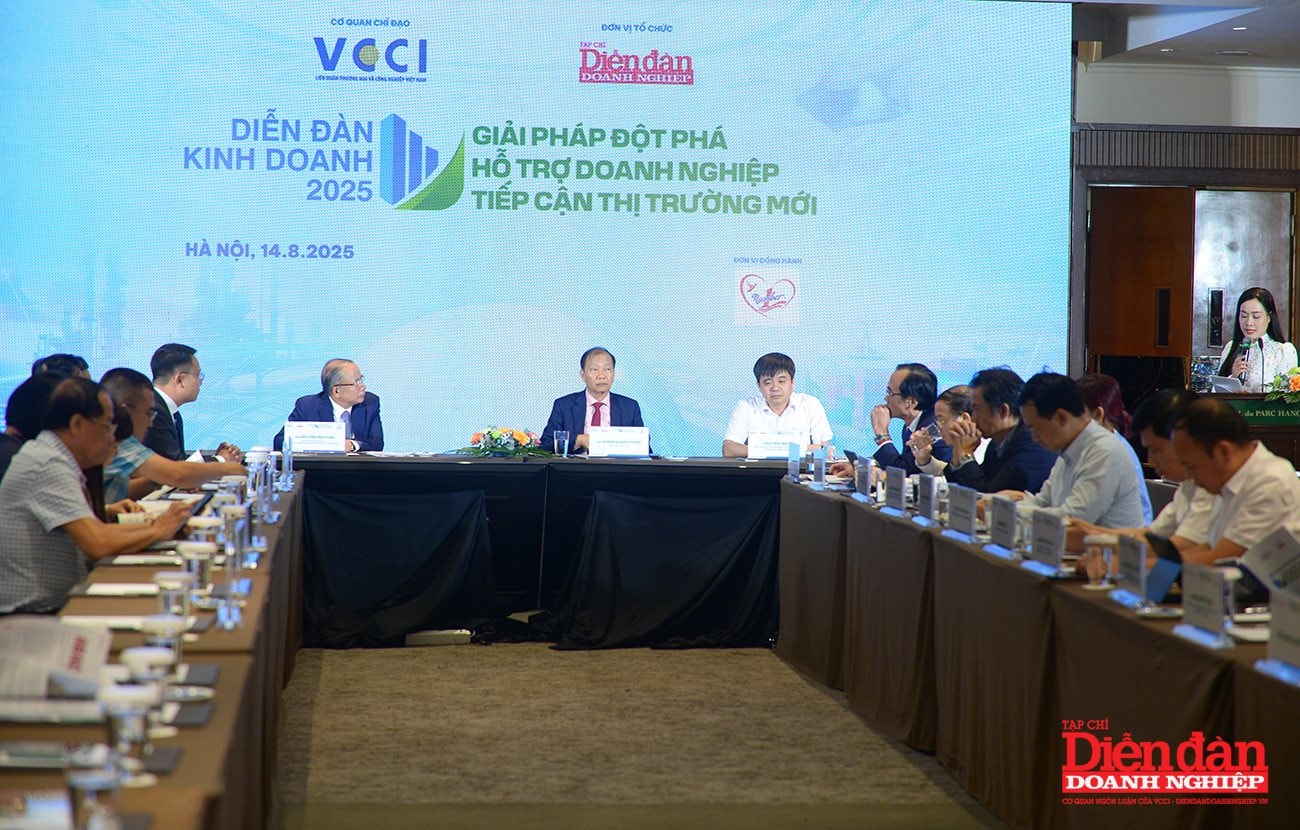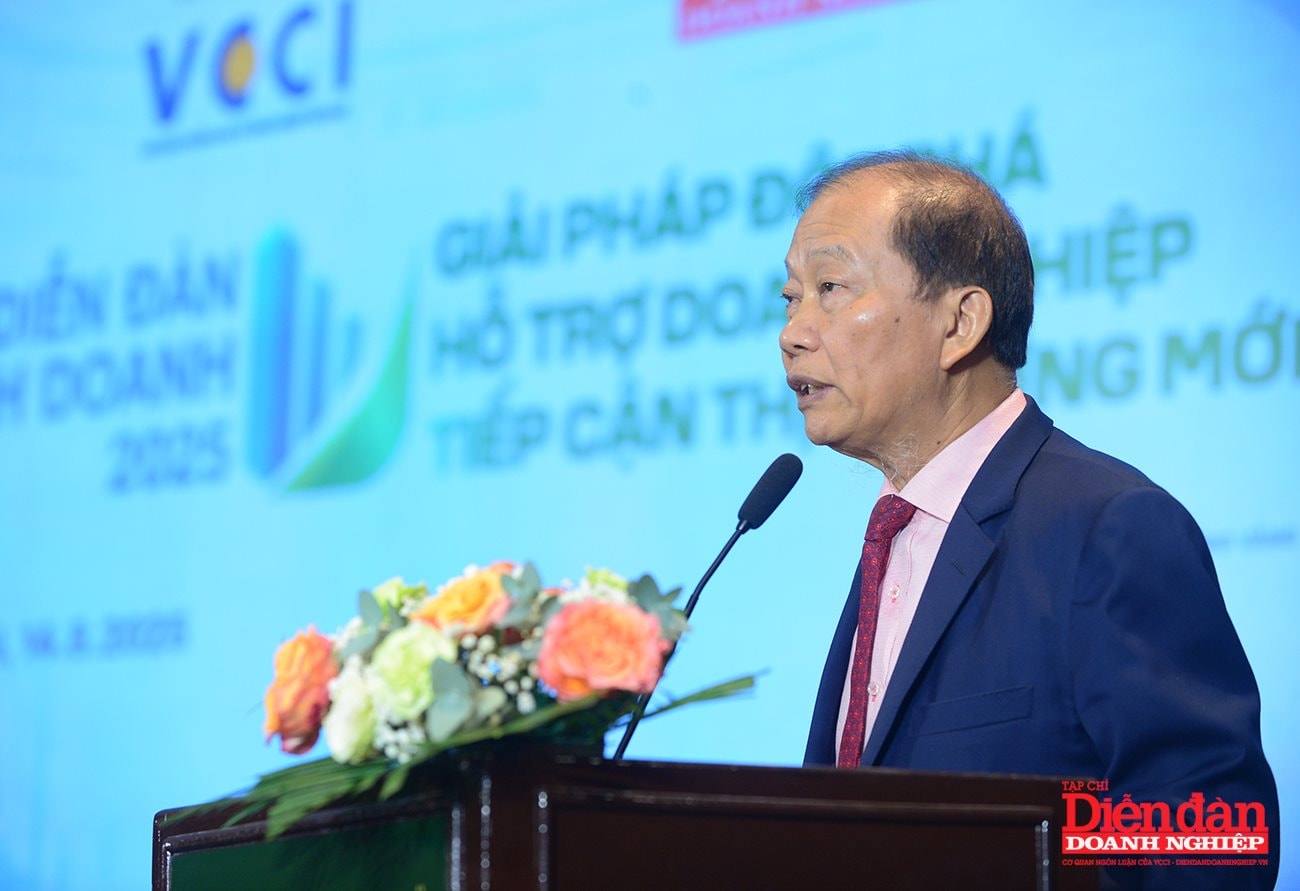Breakthrough solutions to support businesses in accessing new markets
Enterprises must properly approach and capitalise on new markets while reorganizing their own business activities.

Addressing the opening ceremony of the Business Forum 2025: Breakthrough solutions to support businesses in accessing new markets directed by VCCI and organised by Business Forum Magazine on the afternoon of August 14, 2025, in Hanoi, Mr. Hoang Quang Phong, Vice President of the Vietnam Chamber of Commerce and Industry (VCCI), assessed that with the results achieved in the past 7 months, Vietnam's economy is entering a period of accelerated development towards the annual growth target of 8.3 - 8.5%.
As a result, many foreign organisations keep highlighting Vietnam's GDP growth and make optimistic projections for 2025. One of the most noticeable bright spots is the promotion of traditional growth drivers.
"The previous seven months have also been a significant period for Vietnam's economy and business community. Innovation has helped to boost business confidence. Many policies with new thinking and new approaches have been issued, such as Resolutions No. 57/NQ-TW, 59/NQ-TW, 66/NQ-TW, and 68/NQ-TW, implementing the restructuring of the administrative units associated with the 2-level government model, which have paved the way for a new development phase of our country, promoting the flow of capital from the private sector into the economy," emphasised VCCI Vice President.
As such, over 174,000 firms have joined and re-entered the market in the previous seven months, with a total registered capital of more than VND 3.3 million billion, up 93.7% from the same period last year, and almost 536,200 newly created business families, up 165%.
Despite numerous excellent outcomes in socioeconomic development, Mr Hoang Quang Phong stated that meeting the GDP growth objective of more than 8% will present significant hurdles in the remaining months of the year.

Specifically, the world's increasingly complicated geopolitical situation is fundamentally altering the structure of the global economy, restructuring the value chain and hastening the trend of shifting supply chains. Trade policies in major economies are causing global economic uncertainty and fragmentation. Vietnam, an economy with high openness but poor resilience, is expected to be influenced by the world's rising risks and uncertainties.
In the backdrop of an uncertain global economy, VCCI Vice President Hoang Quang Phong believes that Vietnamese firms must innovate to maintain development and compete in both home and international markets.
According to the Ministry of Industry and Trade, Vietnam's export turnover exceeded USD 335 billion in 2024; however, to sustain this development, enterprises must implement a more efficient market access strategy.
Many firms are currently seeking new markets to deal with US tariff worries and global economic uncertainty. "Vietnam has engaged in 17 free trade agreements with over 60 nations and territories, as well as 70 bilateral cooperation mechanisms, making this a viable and long-term strategic orientation. This would assist enterprises in diversifying export markets, lowering reliance on the main market," Mr Hoang Quang Phong said.
Dr Nguyen Van Hoi, Director of the Institute of Strategy and Policy for Industry and Trade (VIOIT), emphasised the importance of FTAs in expanding export markets, particularly for Vietnam's major products.

"New-generation FTAs such as CPTPP and EVFTA not only promote free trade in goods and services but also cover 'non-traditional' areas such as labour, environment, state-owned enterprises, transparency and investment dispute settlement mechanisms, setting higher standards and requiring stricter enforcement," stated Dr Nguyen Van Hoi.
In Resolution No. 226/NQ-CP, the government requires ministries and sectors to aggressively adopt trade promotion solutions, assist enterprises in accessing markets, and increase exports. On the other hand, it must promptly begin discussions and negotiate new free trade agreements, particularly with Middle Eastern nations, India, Africa, and Latin America, as well as enhance the ASEAN Trade in Goods Agreement (ATIGA).
In addition to their own efforts, companies call for support from the government and ministries in implementing preferential tax, credit, and other relevant mechanisms to build supporting industries and enhance localisation rates.








